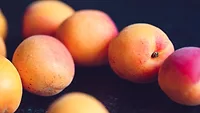CPS-Funded Study Provides Insight Into Listeria Contamination in Produce Processing Plants

Credit: jj01 via Pixabay
A recent research project funded by the Center for Produce Safety (CPS) aims to fill knowledge gaps about the contamination patterns of and sanitation measures for Listeria monocytogenes in produce processing facilities. The project produced practical data about produce facilities’ environmental monitoring plans and the efficacy of sanitation programs regarding L. monocytogenes.
Findings from environmental sampling activities and whole genome sequencing (WGS) analysis revealed insights about the movement of L. monocytogenes across a processing facility, the persistence of the pathogen, and the efficacy of biocides and sanitation practices.
Although the U.S. Food and Drug Administration (FDA) enforces zero tolerance for L. monocytogenes in processed produce samples, the European Commission has set a threshold of 100 colony-forming units (CFU) per gram for the EU, where the project was conducted.
The two-year study, titled, “Identification of Quantitative and Qualitative Patterns of Environmental Contamination by Listeria spp. and L. monocytogenes in Fresh Produce Processing Facilities and Evaluation of Practical Control Measures Able to Eliminate Transient and Persistent Contaminantion,” was led by Ana Allendale, Ph.D., and her team from the Center for Edaphology and Applied Biology of Segura/Superior Council of Scientific Investigations (CEBAS-CSIC) research institute in Spain. Also from CEBAS-CSIS are Dr. Allendale’s co-principal investigators, Mabel Gil, Ph.D., and Pilar Truchado, Ph.D. The scientists recruited the help of three processing plants—with lines for cut iceberg lettuce, cut fruit, and salad bowls—to conduct their research.
To understand how zoning, sanitary design, and connectivity affected contamination of produce, Dr. Allendale’s team began by dividing processing areas into three zones based on their proximity to contact with the produce.
- Zone 1: areas with direct contact, such as knives and conveyor belts
- Zone 2: surfaces that did not contact food but were in close proximity
- Zone 3: more remote non-contact surfaces, such as drains, floors and ceilings, which could potentially lead to contaminating zones 1 and 2.
The researchers conducted systematic sampling of the facilities at the end of each day, prior to cleaning and sanitizing. The three processing lines were also resampled after cleaning and disinfection. In addition to the more than 600 total samples collected from the three zones, the researchers collected 45 samples from raw ingredients and end products. By sampling the processing plants before and after cleaning and disinfection, the researchers were able to discern the entry points of contamination.
From the sampling, the researchers found the highest number of positive L. monocytogenes in Zone 3 across all three facilities that participated in the study.
Looking for quick answers on food safety topics?
Try Ask FSM, our new smart AI search tool.
Ask FSM →
Next, the CEBAS-CSIS team conducted WGS on 100 samples to discover whether the L. monocytogenes strains found in the facilities were transient or persistent. Unexpectedly, the same two serotypes of the pathogen were found across the three processing lines in samples collected both before and after cleaning.
The finding revealed by WGS suggests that the L. monocytogenes serotypes isolated from the facilities are inherent and are moving from Zone 3 to Zone 1, which contrasts the researchers’ original hypothesis that raw material was the main vehicle for introducing the pathogen to facilities.
Finally, the scientists evaluated the efficacy of biocides against resident L. monocytogenes isolates, and demonstrated that all of the isolates obtained from the environment after cleaning were sensitive to the biocides used. Despite the efficacy of the sanitizers, however, the researchers stated that cleaning activities are often not well-performed, which allows pathogens to persist in the environment.
The study’s findings can be practically applied by the three participating processing facilities, and by industry at large. Dr. Allendale believes that the research should help processors better understand the main contamination points in Zone 1 and how they relate to identical or similar L. monocytogenes sequence types in Zone 2 and Zone 3.
Dr. Allendale will present her final report on the project at the 2023 CPS Research Symposium, taking place June 20–21 in Atlanta, Georgia.








